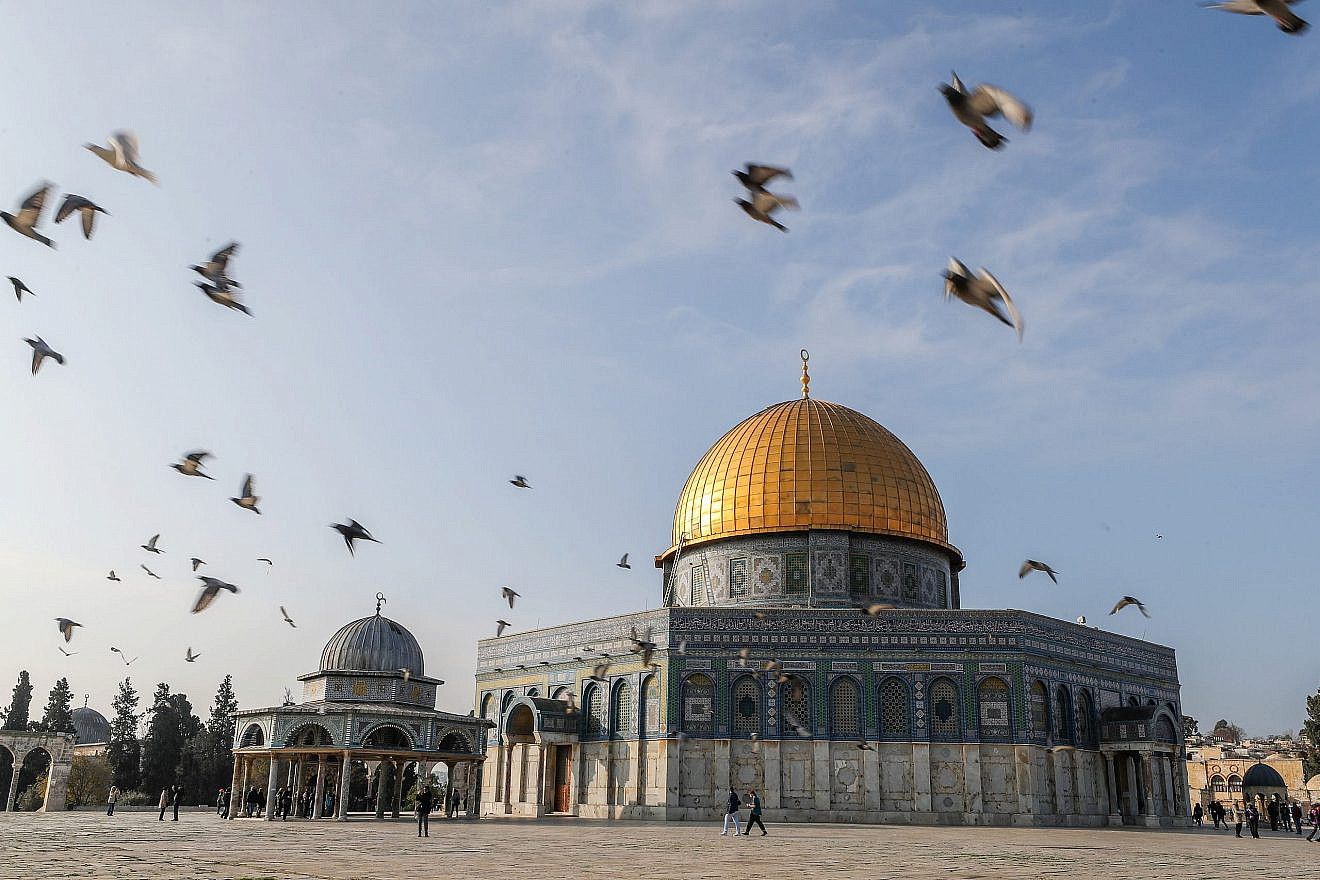“Israel’s policy has always been, and always will be, to safeguard freedom of worship for all faiths,” said Prime Minister Benjamin Netanyahu on Tuesday at the start of a special session with cabinet members and security chiefs to prepare for the imminent month-long Muslim holiday that begins this year on March 10-11. “This is what we have also done during Ramadan, and this is what we will do now.”
He went on: “We will do everything to safeguard freedom of worship on the Temple Mount, while appropriately taking into account security and safety needs, and will enable the Muslim public to mark the holiday.”
This was a reference to the location of the Al-Aqsa mosque on the Temple Mount in Jerusalem, a house of prayer that doubles as a base of violence. Because radical Islamists around the world have turned it into a dual symbol of victimhood at the hands of the “infidels” and victory over them, it is always an incendiary hotspot.
It is especially so during spikes in Palestinian terrorism and Ramadan, which usually go together. This is bad news for Muslims who treat the holiday—one of the Five Pillars of Islam—as a period for spiritual contemplation and self-discipline.
It’s far worse, however, for the Jews targeted by those who consider the 30 days of fasting and feasting an opportune time for waging jihad. Not that the latter need Ramadan or Al-Aqsa as an excuse.
Indeed, they’re just as happy to commit mass murder on Jewish and Christian holidays. Hamas’s genocidal Oct. 7 massacre on Simchat Torah and a Shabbat morning is only the most recent example.
But it was the casus belli of the current war in Gaza. Yes, Israel realized on that day five months ago that it had no choice but to destroy the terrorist organization that perpetrated the rape, immolation, decapitation, maiming, slaughter and abduction of hundreds of innocent men, women and children.
Still, though the war isn’t yet over and 134 hostages still remain in brutal Hamas captivity, the government in Jerusalem refuses to suspend access to the Temple Mount on Ramadan. And this is in spite of the name that Hamas and fellow sadistic groups in Gaza dubbed their multi-pronged attacks on Oct. 7: “Operation Al-Aqsa Flood.”
The title was as carefully planned as the air, sea and land invasion masterminded by Hamas’s head honcho in Gaza, Yahya Sinwar. He has witnessed the way in which the lie that the Jews are taking over and defiling Al-Aqsa with their “filthy feet”—a falsehood repeated by Palestinian Authority leader Mahmoud Abbas—galvanizes Islamists everywhere around the shared mission of annihilating Israel.
Invoking Ramadan in this context is even better for the likes of Sinwar where rabble-rousing in concerned. His Qatar-based counterpart, Ismail Haniyeh, did just that last month.
In a fiery speech from his perch of luxury in Doha, Haniyeh called on the Iran-led “Axis of Resistance” to increase attacks on Israelis during Ramadan to “break the siege on Al-Aqsa mosque.”
Haniyeh’s speech followed an assessment by Israeli Defense Minister Yoav Gallant that Hamas was aiming to turn Ramadan into the “second phase of the plan it put into practice on Oct. 7”—and using the Temple Mount to do it.
Uh, no kidding. You don’t need a military background to take Hamas at its word or observe its deeds.
The trouble is Gallant’s—and the government’s—conclusion: that the country cannot risk what the international community dubs “escalation” at such a sensitive juncture. In other words, if Israel isn’t religiously sensitive on Ramadan, then the Palestinians will engage in terrorism.
Sinwar would be the first to laugh at this suggestion since it is Israel’s existence, not its behavior, that is at the root of his actions and those he instigates. He is fully aware as well that Israel guarantees Muslims’ freedom of worship, while forbidding Jews from praying, even silently, on the Temple Mount.
Like all Iran-backed terrorists, he seeks the very “escalation” that Israel is desperate to hinder and assumes that Netanyahu will be held responsible for any violence at Al-Aqsa during Ramadan. Given past experience, it’s a safe bet on his part.
After Oct. 7, Israel ought to be less concerned with its image than with keeping its populace alive. Let’s hope that the defense establishment and police are not only “preparing for a range of security scenarios,” as JNS military correspondent Yaakov Lappin reported in these pages, but intend to implement them when necessary.


























